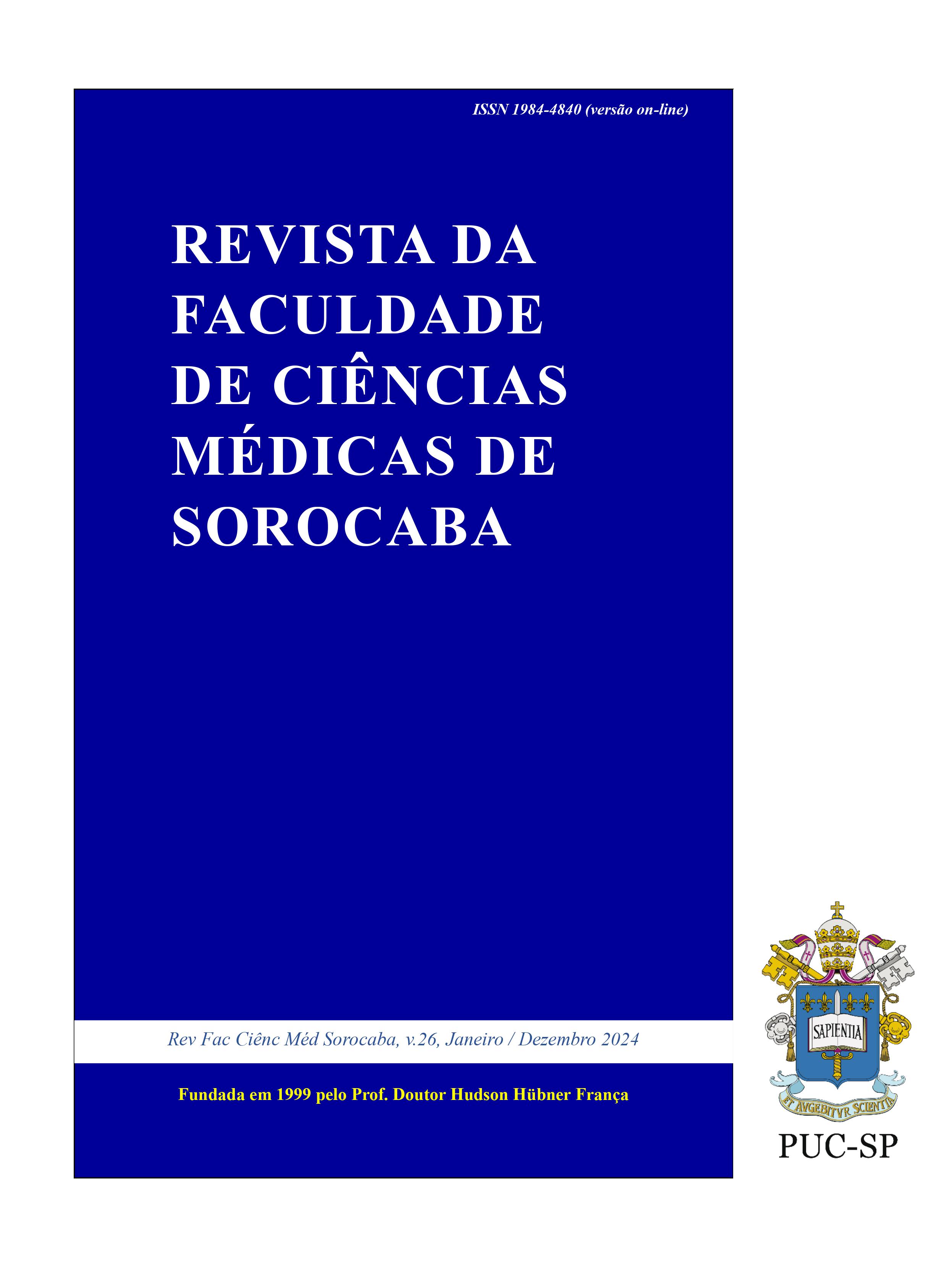The impact of the COVID-19 pandemic on children and adolescents with autism spectrum disorder and their caregivers
DOI:
https://doi.org/10.23925/1984-4840.2024v26a20Palabras clave:
COVID-19, Pandemic, Autism Spectrum Disorder, Caregivers, Children, AdolescentsResumen
Objective: To analyze the impact of the COVID-19 pandemic and social distancing on children and adolescents with autism spectrum disorder (ASD) and their caregivers. Methods: Observational, descriptive, and cross-sectional study conducted with parents/caregivers of children with ASD through an online questionnaire with 39 questions. Data were collected from October 2020 to January 2021, referring to the critical period of the pandemic in Ceará, from March to June 2020. Results: Of the 122 research participants (children/adolescents aged 2 to 18 years, average of 6.7 years), 87.7% interrupted multidisciplinary treatments during isolation. Most caregivers (86.8%) had more difficulties managing the children's free time. Behavioral problems became more intense for 61.5% and more frequent for 59.8% of participants. Difficulties in managing meals were reported by 39.3% of participants, and 97.1% stated that problems in managing autonomy were amplified. Behavioral regressions and worsening symptoms occurred in 81.1% of cases. Children and adolescents with pre-pandemic behavioral problems showed a significantly greater increase in the intensity (OR = 3.87, p = 0.05) and frequency (OR = 3.42, p = 0.05) of behavioral problems. In contrast, being an only child proved to be a protective factor against the negative impacts of isolation, with a significant reduction in the intensification (OR = 0.16, p < 0.05) and frequency (OR = 0.08, p < 0.01) of behavioral problems. Conclusion: The COVID-19 pandemic and social distancing negatively altered behavior, eating, and self-care patterns in children and adolescents with ASD, making this period more challenging for their caregivers.
Citas
Smile SC. Supporting children with autism spectrum disorder in the face of the COVID-19 pandemic. CMAJ. 2020;192(21):E587. doi: 10.1503/cmaj.75399.
American Psychiatric Association. Neurodevelopmental disorders. In: American Psychiatric Association. Diagnostic and statistical manual of mental disorders. 5th ed. revision of the text). 2020. doi: https://doi.org/10.1176/appi.books.9780890425787.x01_Neurodevelopmental_Disorders
Lima DLF, Dias AA, Rabelo RS, Cruz ID, Costa SC, Noronha FM, et al. COVID-19 no estado do Ceará, Brasil: comportamentos e implicações na chegada da pandemia. Ciênc Saúde Colet. 2020;25:1575-86. doi: 10.1590/1413-81232020255.07192020.
Ribeiro EG, Souza EL, Nogueira JO, Eler R, Moura FRM. Saúde mental na perspectiva do enfrentamento à COVID-19: manejo das consequências relacionadas ao isolamento social. Rev Enferm Saúde Colet [Internet]. 2020 [acesso em 20 ago. 2023];5:47-57. Disponível em: http://revesc.esy.es/index.php/revesc/article/view/59/68
Ferreira NSP. Qualidade de vida dos familiares de pessoas com transtorno do espectro autista [dissertação]. Macapá: Universidade Federal do Amapá; 2018.
Colizzi M, Sironi E, Antonini F, Ciceri ML, Bovo C, Zoccante L. Psychosocial and behavioral impact of COVID-19 in autism spectrum disorder: an online parent survey. Brain Sci. 2020;10(6):341. doi: 10.3390/brainsci10060341.
Logrieco MG, Casula L, Ciuffreda GN, Novello RL, Spinelli M, Lionetti F, et al. Risk and protective factors of quality of life for children with autism spectrum disorder and their families during the COVID-19 lockdown. An Italian study. Res Dev Disabil. 2022 Jan;120:104130. doi: 10.1016/j.ridd.2021.104130.
Cidav Z, Marcus SC, Mandell DS. Implications of childhood autism for parental employment and earnings. Pediatrics. 2012;129(4):617-23. doi: 10.1542/peds.2011-2700.
Zhou W, Liu D, Xiong X, Xu H. Emotional problems in mothers of autistic children and their correlation with socioeconomic status and the children's core symptoms. Medicine (Baltimore). 2019;98(32):e16794. doi: 10.1097/MD.0000000000016794.
Hartley SL, Barker ET, Seltzer MM, Floyd FJ, Greenberg JS, Orsmond GI. The relative risk and timing of divorce in families of children with an autism spectrum disorder. J Family Psychol. 2010;24(4), 449-57. doi: 10.1037/a0019847.
Garcia JM, Lawrence S, Brazendale K, Leahy N, Fukuda D. Brief report: The impact of the COVID-19 pandemic on health behaviors in adolescents with Autism Spectrum Disorder. Disabil Health J. 2021;14(2):101021. doi: 10.1016/j.dhjo.2020.101021.
Sartor T, Sons S, Kunina-Habenicht O, Tröster H, Kuhn JT. Demands and stress before and during the COVID-19 pandemic of parents to children with autism spectrum disorder. Front Psychol. 2023;14:1212556. doi: 10.3389/fpsyg. 2023.1212556.
Friesen KA, Weiss JA, Howe SJ, Kerns CM, McMorris CA. Mental health and resilient coping in caregivers of autistic individuals during the COVID-19 pandemic: findings from the families facing COVID study. J Autism Dev Disord. 2022;52(7):3027-37. doi: 10.1007/s10803-021-05177-4.
Carvalho JA, Santos CSS, Carvalho MP, Souza LSA. Nutrição e autismo: considerações sobre a alimentação do autista. Rev Cient ITPAC. 2012;5(1):Pub1.
Panjwani AA, Bailey RL, Kelleher BL. COVID-19 and behaviors in children with autism spectrum disorder: Disparities by income and food security status. Res Dev Disabil. 2021 Aug;115:104002. doi: 10.1016/j.ridd.2021.104002.
Levante A, Petrocchi S, Bianco F, Castelli I, Colombi C, Keller R, et al. Psychological impact of COVID-19 outbreak on families of children with autism spectrum disorder and typically developing peers: an online survey. Brain Sci. 2021;11(6):808. doi: 10.3390/ brainsci11060808.
Bozkus-Genc G, Sani-Bozkurt S. How parents of children with autism spectrum disorder experience the COVID-19 pandemic: perspectives and insights on the new normal. Res Dev Disabil. 2022;124:104200. doi: 10.1016/j.ridd.2022.104200.
Jacques C, Saulnier G, Éthier A, Soulières I. Experience of autistic children and their families during the pandemic: from distress to coping strategies. J Autism Dev Disord. 2022;52(8):3626-38. doi: 10.1007/s10803-021-05233-z.
Wang G, Zhang Y, Zhao J, Zhang J, Jiang F. Mitigate the effects of home confinement on children during the COVID-19 outbreak. Lancet. 2020;395(10228):945-7. doi: 10.1016/S0140-6736(20)30547-X.
Descargas
Publicado
Cómo citar
Licencia
Derechos de autor 2024 Revista da Faculdade de Ciências Médicas de Sorocaba

Esta obra está bajo una licencia internacional Creative Commons Atribución-NoComercial 4.0.
Os autores no momento da submissão transferem os direitos autorais, assim, os manuscritos publicados passam a ser propriedade da revista.
O conteúdo do periódico está licenciado sob uma Licença Creative Commons 4.0, esta licença permite o livre acesso imediato ao trabalho e que qualquer usuário leia, baixe, copie, distribua, imprima, pesquise ou vincule aos textos completos dos artigos, rastreando-os para indexação, passá-los como dados para o software, ou usá-los para qualquer outra finalidade legal.

 Este obra está licenciada com uma Licença
Este obra está licenciada com uma Licença 